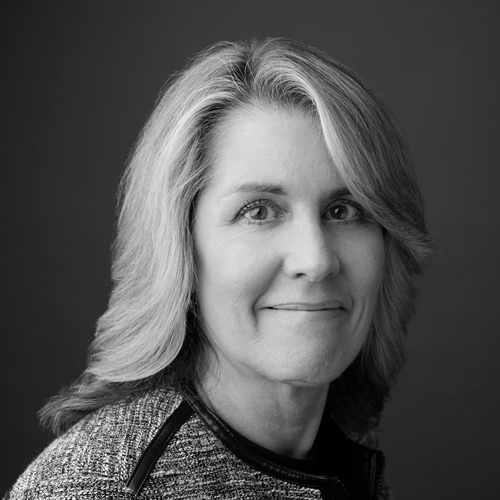
Nicki McCraw never wants employees to develop “survey fatigue.” In her eleven-plus years at the University of Washington Medicine (UW Medicine), McCraw has worked tirelessly to improve inclusion, retention, employee engagement, and patient satisfaction. And while that involves listening to staff members above all else, she makes it a point to never have a check-the-box approach to HR.
“We’re not doing these initiatives to check things off lists,” explains the assistant vice president of human resources. “We value feedback and want to make sure our work is the best it can be.”
Now, McCraw and her team work diligently to improve the performance of staff members and the organization as a whole, which delivers the best quality of care to patients.
Designing a Premier Destination
Part of what separates UW Medicine in the healthcare industry is its culture, which stresses that Patients Are First and hones in on what patients would consider excellent service: respectful, compassionate, timely, recognizing and welcoming, personalized, inclusive of families, efficient, coordinated, informative, and innovative in support of their care. A major aspect of maintaining that success of the Patients Are First initiative is the Employer of Choice project.
The project began nine years ago at UW Medicine to encourage high-quality care and fiscal responsibility, among other values. As a champion for the Employer of Choice pillar, McCraw is responsible for setting system-wide goals throughout UW Medicine’s hospital and testing to see whether hospital staff and educators are meeting those goals.
The goals for determining Employer of Choice are flexible and dependent on the most prevalent issues the organization faces at that time. Currently, one of the most important metrics at UW Medicine is retention. Because Seattle has become a hotbed of the pharmaceutical industry, competition for talent is at an all-time high. To that end, determining the Employer of Choice strategy presently involves the use of thirty-, sixty-, and ninety-day stay reviews with staff to see how they could help retain employees and administrators.
Those reviews, in conjunction with peer interviews, have allowed UW Medicine to maintain steady retention rates despite the high demand in Seattle’s market. “People do better if they have people on the team they can go to as part of these peer interviews,” McCraw says.
The Importance of Patient Satisfaction
One of the most important metrics for bettering the organization is patient satisfaction. In fact, McCraw sees that focus as “the ultimate benchmark” for her work at UW Medicine.
“The patients are your customers, and we have to determine not only if they will they come back the next time they need care, but also if they will recommend you to others,” she says.
McCraw says that the department uses patient satisfaction to tie every employee to the overarching purpose of their work, and she believes every employee should know how their job impacts patient care. “We tell that story to them over and over again,” McCraw says.
To maintain accountability and employee motivation, UW Medicine hospitals also post their patient satisfaction score everywhere for public view. “Nobody wants to see red scores,” says McCraw, adding that leads to productive talks with employees about how they can personally impact patient satisfaction. No employee, she says, is exempt from the process, and even environmental service workers who are tasked with cleaning the hallways must find ways to accomplish that with limited patient disruption.
Stay Engaged
Another major focus for McCraw’s HR department is employee engagement, which is determined with an annual survey that grades each employee’s engagement level on a scale from one to five. Based on the findings, HR creates a toolbox for leaders to help improve upon the results of those surveys, including a training toolkit that teaches leaders how to understand their data and make changes in staff policy and performance if needed.
Outside firms are even starting to take notice of McCraw’s initiatives. “Nicki is an innovator in recognizing, building, and driving initiatives that address and fuel the hunger for cultural competence in human resources,” says Lauren Parris Watts, partner at Helsell Fetterman. “It is both the right thing to do and a very effective legal strategy.”
The results speak for themselves. McCraw says that during her tenure, she has observed top of the mark engagement scores with many leaders close to perfect fives. Those scores are especially impressive considering the recent tough economic times that had a major impact not only on the healthcare industry but also every organization in every industry across the nation.
“There were a few years during the recession where we didn’t give raises,” McCraw says, but adds that the engagement scores continued to climb and that those metrics, along with patient satisfaction, are crucial to learning the best means of improving the staff’s importance. “It’s a lot of work, but we believe it’s critically important to value the information from that survey and use it to make things better,” she continues.
A major aspect of employee engagement is also empowering diversity and inclusion initiatives, which are core values for UW Medicine and are significant metrics for success in McCraw’s management of UW Medicine’s staff. “Data showed that our staff wanted more diversity and inclusion training to better serve their clients,” she says.
To address that concern, McCraw created a cultural competence task force to help create opportunities to talk about topics related to diversity and inclusion. The HR department regularly invites speakers to talk to staff about implicit bias in the workplace, and McCraw says that UW Medicine integrates diversity, inclusion, and cultural humility competencies into all of the organization’s performance expectations.
In fact, in one instance, McCraw took her seventy-person team to see the film Hidden Figures, followed by a group discussion. “People are very engaged by these initiatives,” says McCraw, adding that she has seen tremendous improvement in cultural competency and inclusiveness in hiring as a result.
While these initiatives have varied when it comes to how they influence UW Medicine, the constant thread has been the tireless work ethic of McCraw and her team. In today’s competitive landscape for talent in the healthcare industry—particularly in Seattle—it’s been the strength of UW Medicine’s culture and initiatives that have placed it at the forefront of being a premier destination not only for top talent but also for patient care and satisfaction.
Off the Clock with Nicki McCraw
When Nicki McCraw isn’t helping to spearhead the latest HR initiatives at UW Medicine, she enjoys giving back as an ambassador for UW’s Whole U program.
Whole U hosts programs, events, and resources for the University of Washington and UW Medicine faculty, staff, and students on the Seattle, Bothell, and Tacoma campuses. These programs are designed to increase holistic wellness, grow community connections, and inspire UW to meet their goals for a healthy, balanced lifestyle.
While most campuses focus on fitness, McCraw says Whole U makes use of every resource on these campuses. UW’s medical department also brings in physicians and dietitians to host seminars, where they talk about food allergies and proper diet, for instance.
“We get a lot of comments about how it is a great program that makes people feel more connected to the workplace,” McCraw says.

